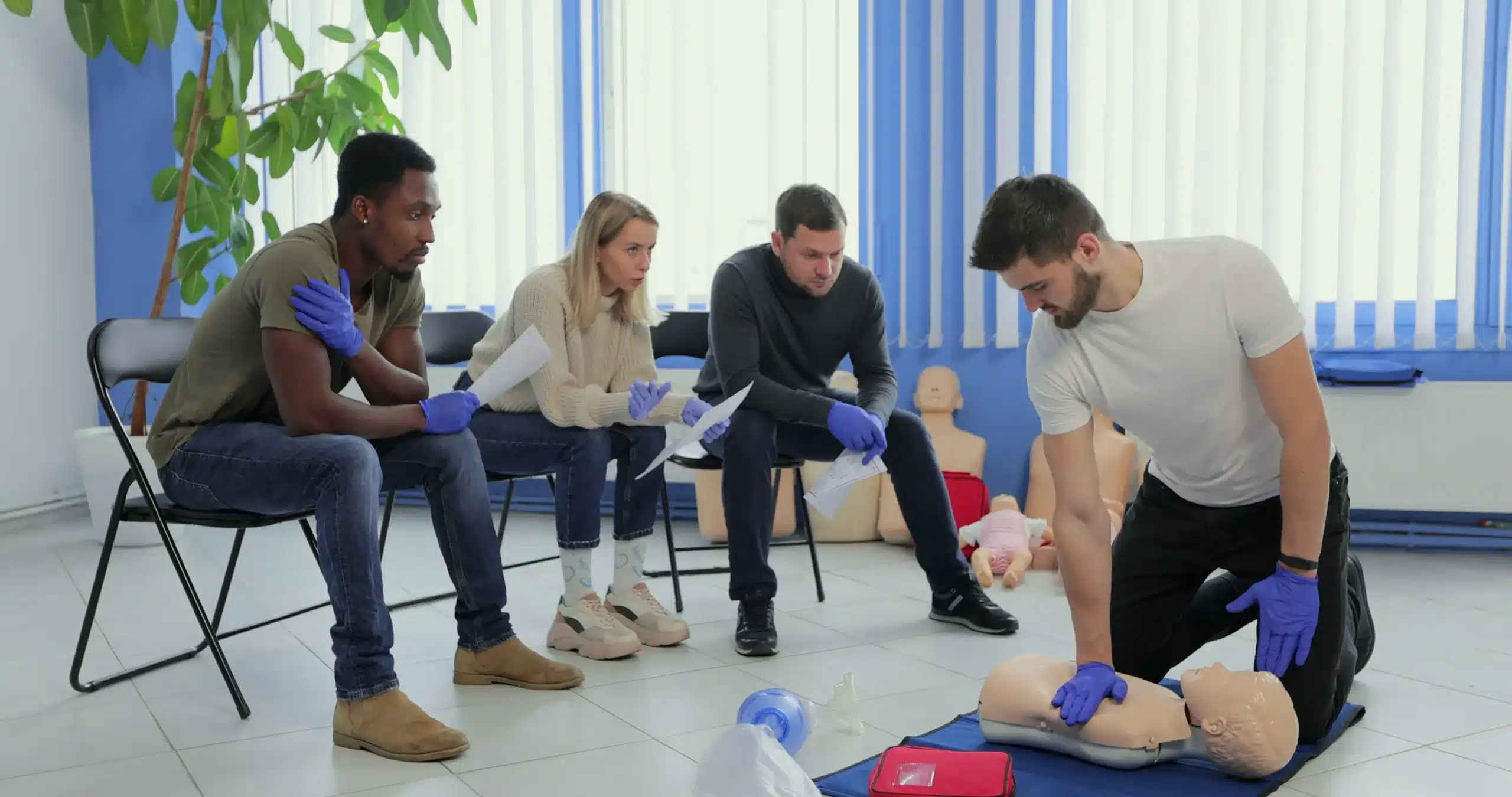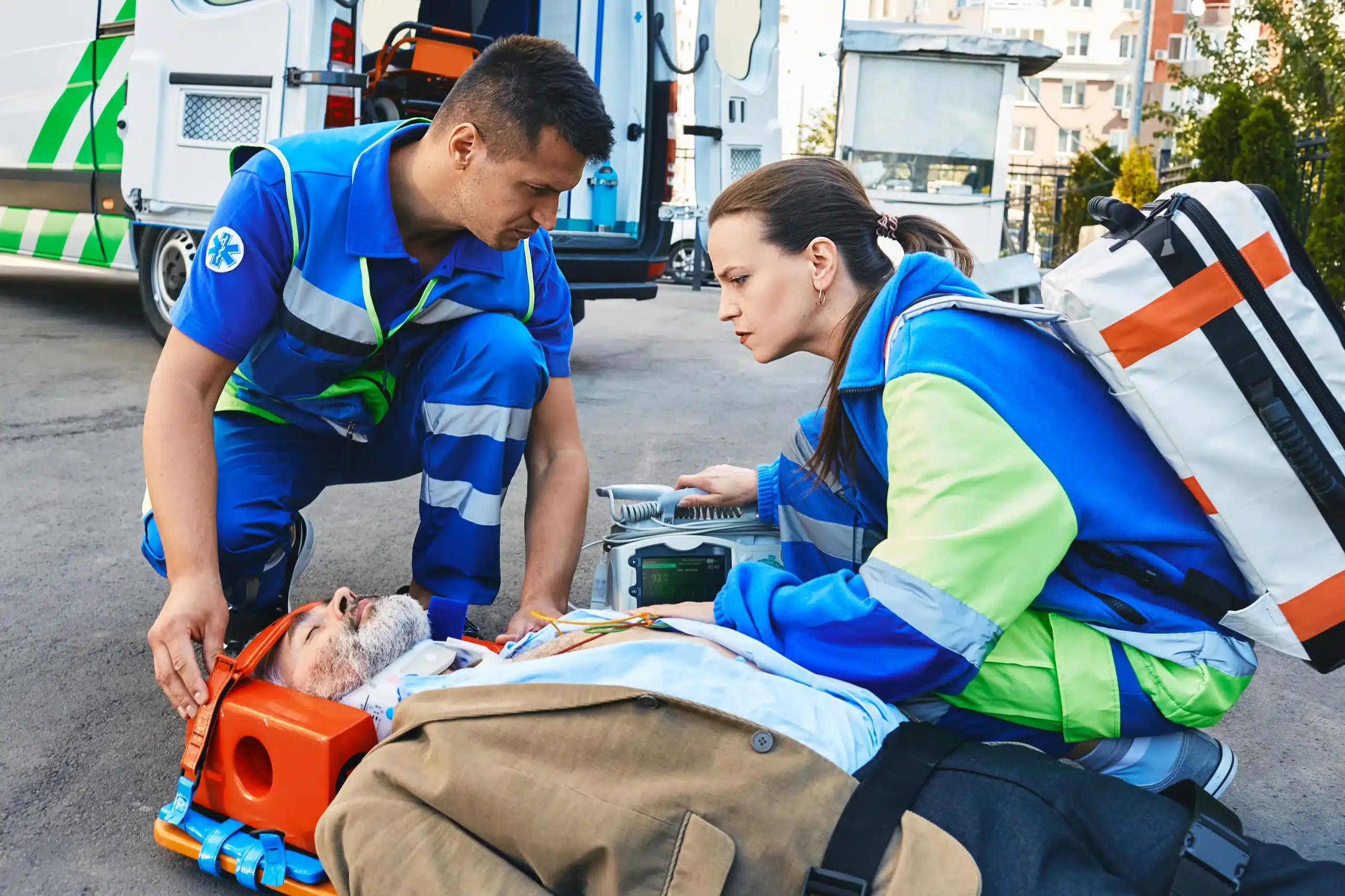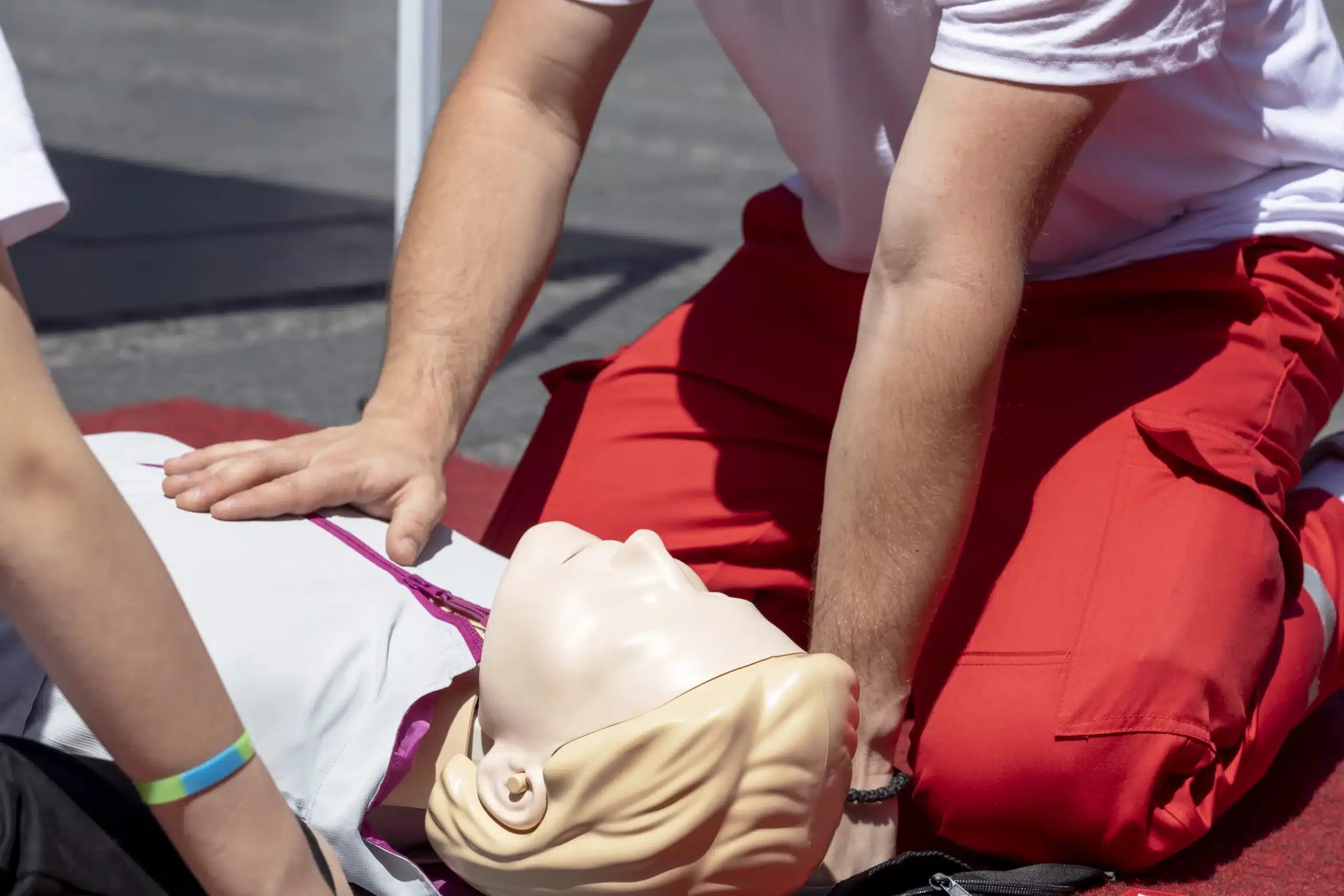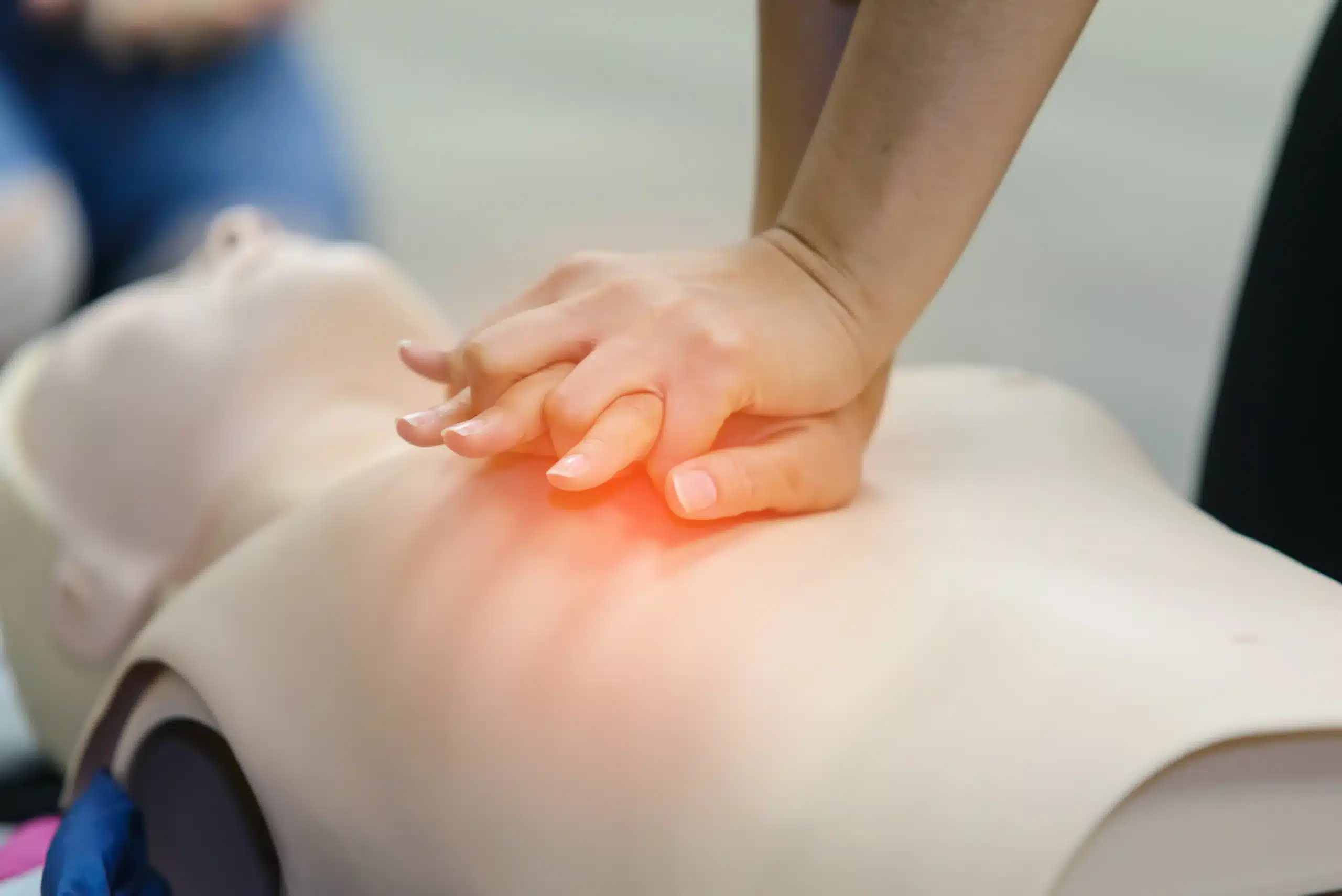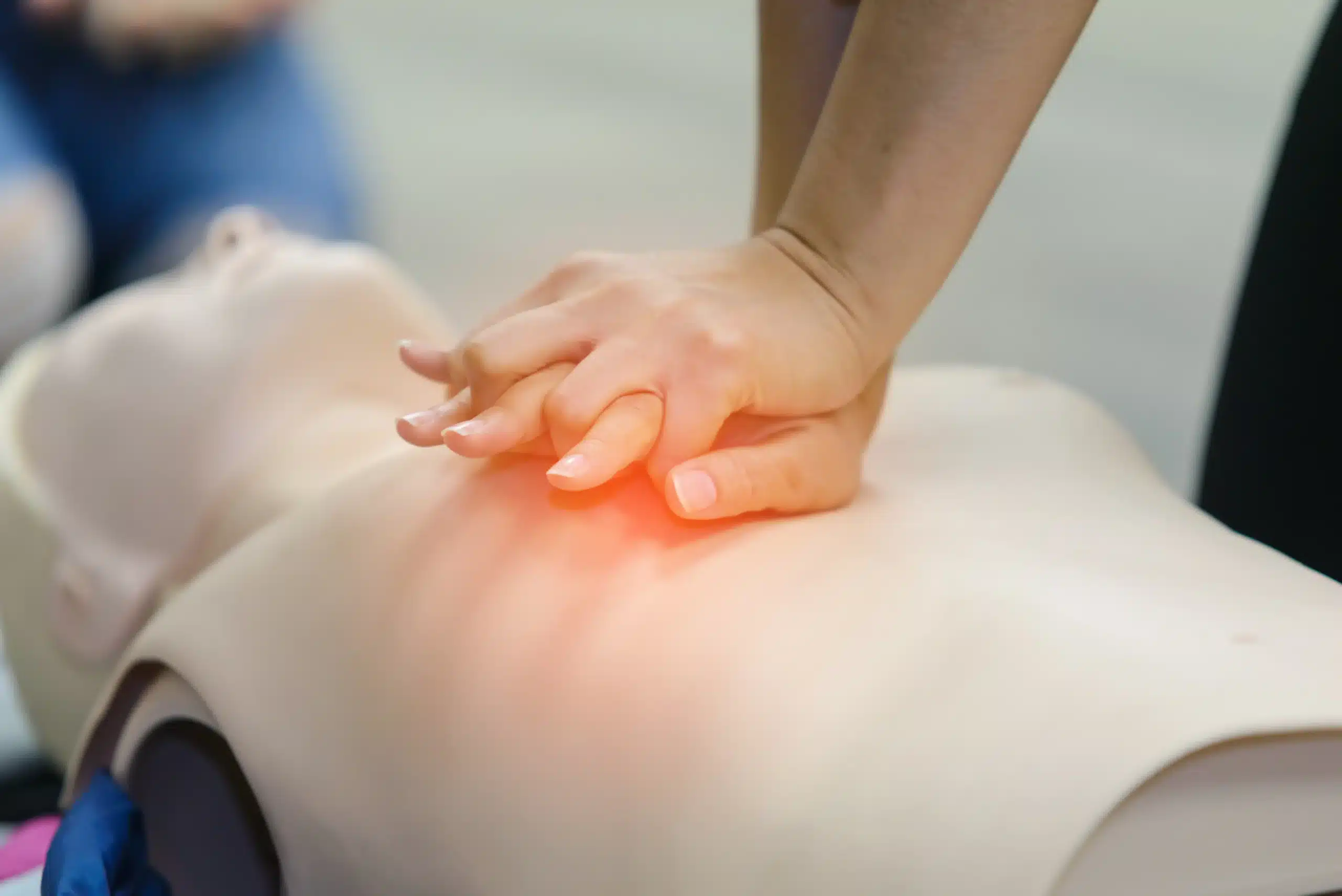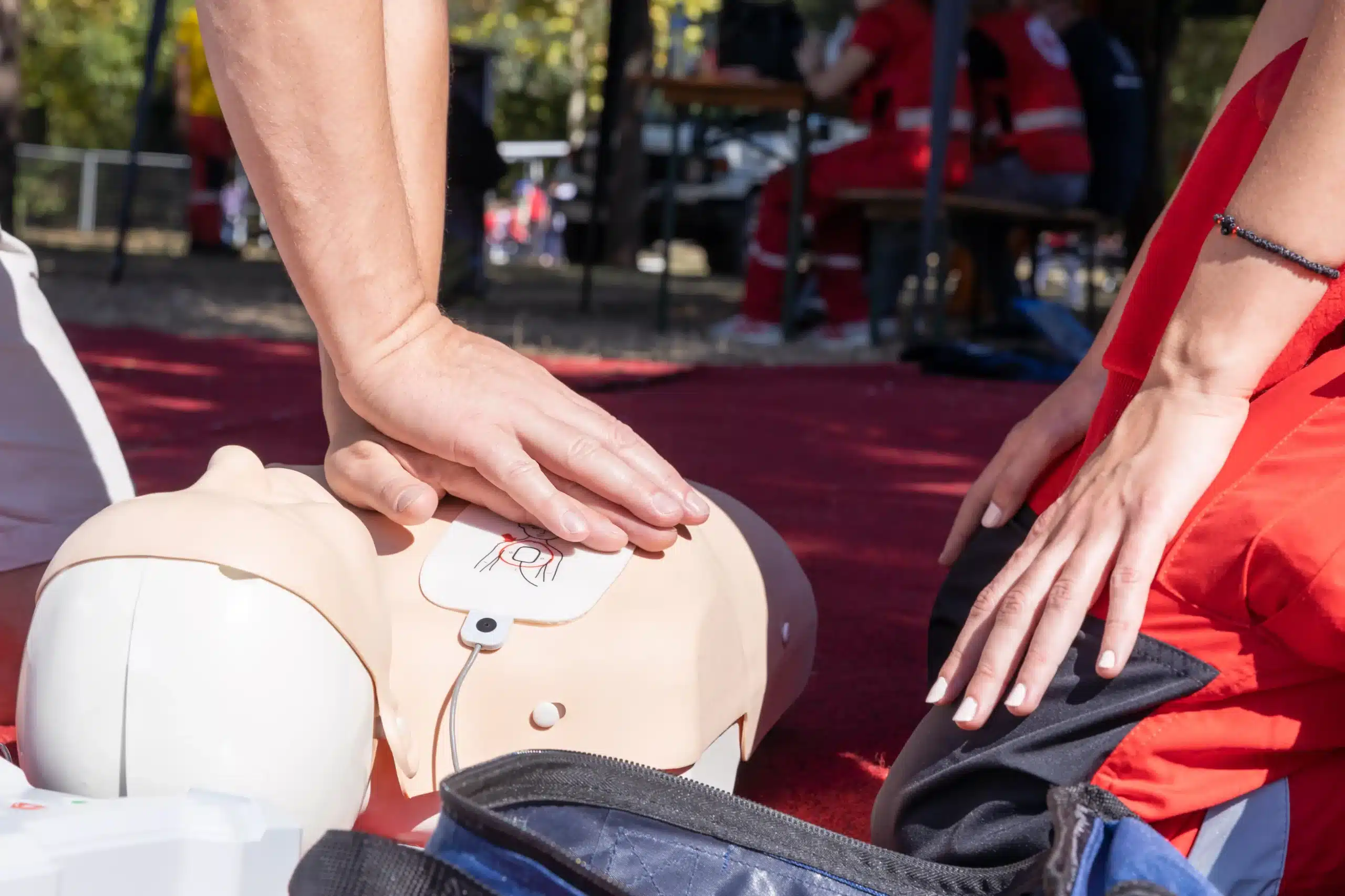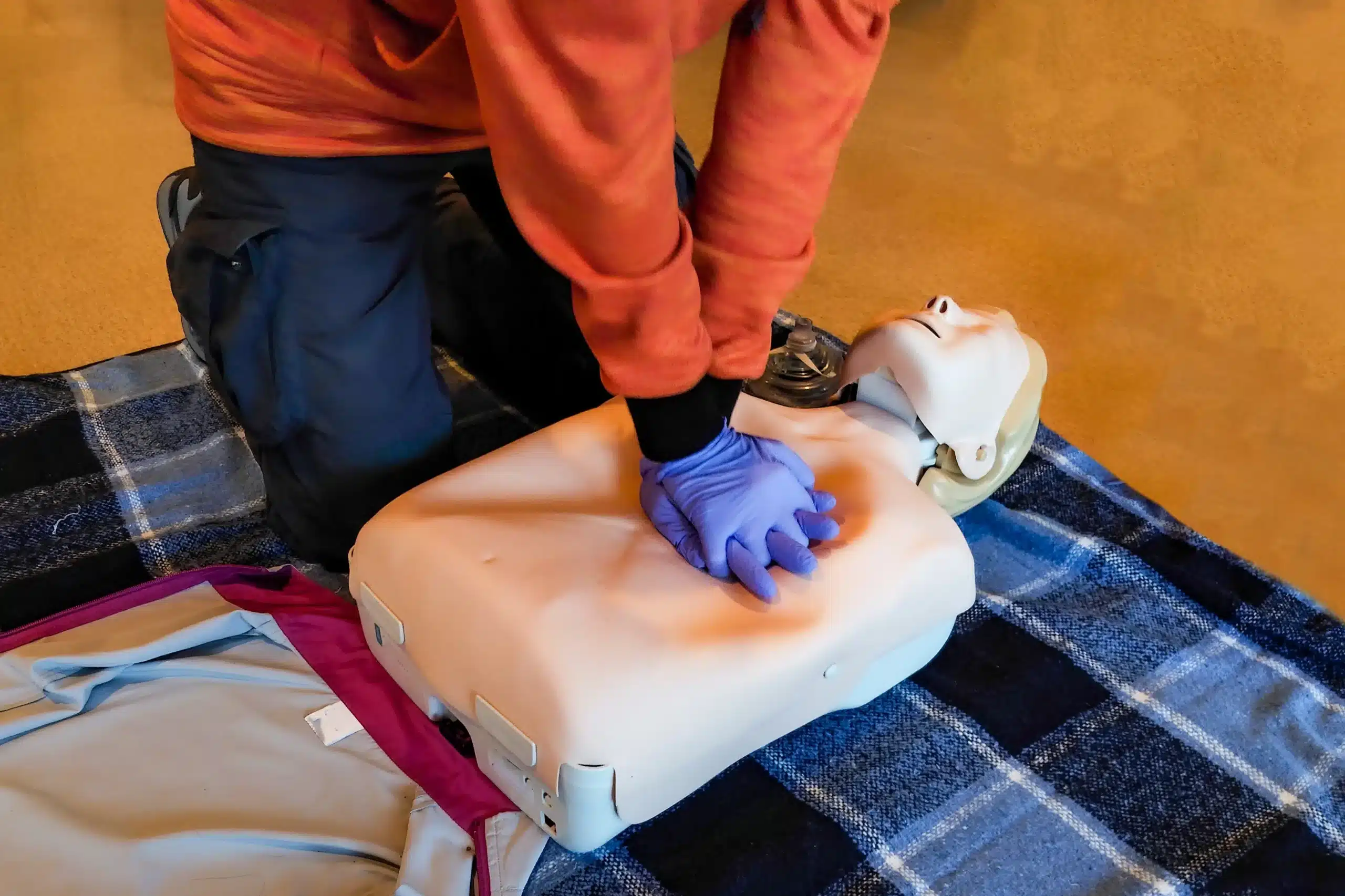As a healthcare provider, your skills can make all the difference in critical situations. Keeping your Basic Life Support (BLS) certification current is key to delivering effective care when it matters most. This comprehensive guide walks you through the essentials of BLS renewal, including finding convenient “bls renewal near me” options, understanding the costs involved, and selecting the best course format for your learning style. We’ll also cover the importance of accreditation and offer tips for maintaining your skills long after you’ve completed your renewal course.
Key Takeaways
- Choose a trusted BLS renewal provider: Seek AHA-certified instructors, check reviews, and consider providers like Palo Alto CPR Classes with a low-price guarantee. Factor in location, scheduling, and course format (in-person, online, or blended).
- Understand course costs and value: BLS renewal typically ranges from $75 to $125 in Palo Alto. Inquire about extra fees for materials or cards. Ask about group discounts.
- Maintain your skills: Practice regularly after your course. Schedule your next renewal in advance to avoid a lapse in certification.
What is BLS Renewal?
BLS renewal is how healthcare providers and other professionals keep their Basic Life Support certification current. It’s essentially a refresher course in life-saving techniques. Renewing your BLS certification is important for staying up-to-date with the latest guidelines from the American Heart Association (AHA) and ensuring you’re aligned with best practices, so you’re prepared to respond effectively in emergencies.
BLS certification is typically valid for two years. It’s essential to renew your certification before it expires to avoid a lapse. The renewal process usually involves completing a course and passing an exam to demonstrate your proficiency in BLS techniques. There’s no grace period after expiration, so timely renewal is key for those in healthcare and emergency response roles. For more information specific to our local area, check out our blog post on BLS Renewal in Palo Alto.
Find Top-Rated BLS Renewal Providers Near You
Finding the right BLS renewal provider is crucial for a smooth and valuable recertification experience. Take the time to research and compare options to ensure you choose a provider that meets your needs and learning style.
Evaluate Provider Reputation and Instructor Qualifications
Start by looking for providers with a strong track record and positive reputation within the healthcare community. A provider’s reputation often reflects the quality of their instruction and commitment to student success. Instructors should be certified by a recognized organization like the American Heart Association (AHA), demonstrating their up-to-date knowledge and expertise in BLS. Choosing an AHA-certified BLS course ensures high-quality training based on the latest guidelines. You can often find this information on the provider’s website or by contacting them directly.
Check Course Reviews and Testimonials
Reading reviews and testimonials from past students offers valuable insights into a provider’s strengths and weaknesses. Sites like Yelp often feature reviews of local BLS training providers, giving you a sense of the overall student experience. Look for comments about the quality of instruction, course materials, and the overall learning environment. Yelp can be a helpful starting point for your research.
Leading Local BLS Renewal Providers
Here are a few local BLS renewal providers in the Palo Alto area to get you started:
Palo Alto CPR Classes
Safety Training Seminars, located in Palo Alto, offers comprehensive BLS certification and recertification courses covering essential lifesaving skills like high-quality CPR, AED use, and choking relief. They provide various course formats to accommodate different schedules and learning preferences.
American Red Cross
The Red Cross offers BLS renewal and recertification courses throughout the Bay Area. They are a well-established organization with a long history of providing CPR and first aid training.
Stanford Health Care
Stanford Health Care provides a variety of CPR and BLS courses tailored for healthcare professionals, ensuring they meet the latest standards and guidelines. Check their website for course schedules and availability.
Kaiser Permanente
Kaiser Permanente offers BLS renewal courses designed to keep healthcare providers current with the latest life-saving techniques. These courses are often available to both Kaiser members and the general public.
BLS Renewal Course Costs and Value
Knowing the price range for BLS renewal and what factors influence cost helps you budget and ensures you’re getting good value.
Average Local Price Range
BLS renewal courses in the Palo Alto area typically range from $75 to $125. Safety Training Seminars, for example, offers a comprehensive BLS Provider HeartCode course for $120, combining online learning with in-person skills testing. This course covers essential lifesaving skills, including high-quality CPR, AED use, and choking relief. Remember that prices can change, so check with your chosen provider for their most current pricing.
Consider Additional Fees
While the base course fee is a significant part of the cost, remember there might be additional fees. Some providers charge extra for study materials, certification cards, or online access. Inquire about these potential extra costs upfront for accurate budgeting.
Palo Alto CPR Classes’ Low Price Guarantee
For affordable, high-quality BLS renewal, Palo Alto CPR Classes offers a low price guarantee. This commitment to affordability makes them an excellent option for cost-effective training without compromising quality. They also offer various courses, including BLS, ACLS, and PALS, all through the American Heart Association.
Group Rates and Special Offers
If you’re with a group needing BLS renewal—coworkers or a community organization—ask about group discounts. Many providers, including Palo Alto CPR Classes, offer reduced rates for group bookings. Contact the training center to discuss your needs and explore available group discounts. They can also answer questions about course content, scheduling, or other aspects of BLS certification in the Palo Alto area. Reach out and explore options that maximize value and convenience for your team.
Choose the Right Course Format
Finding the right BLS renewal course format is key to effectively renewing your skills and knowledge. Whether you thrive in a hands-on environment, prefer the flexibility of online learning, or appreciate a combination of both, understanding the benefits of each format can help you make the best choice.
In-Person Training Benefits
In-person training offers a dynamic learning experience perfect for those who value direct interaction. You’ll practice skills in real-time with instructors providing immediate feedback. This format fosters a collaborative learning environment where you can ask questions, clarify doubts, and engage with fellow participants. In-person BLS renewal emphasizes hands-on learning, crucial for mastering essential CPR techniques.
Online Course Advantages
Online BLS renewal courses offer unparalleled flexibility and convenience. If you have a busy schedule or prefer learning at your own pace, an online course might be ideal. Study anytime, anywhere, fitting the coursework around your commitments. This format often incorporates interactive modules and simulations to reinforce learning, even without a physical classroom. Renewing your BLS certification online is essential for staying current with life-saving techniques while accommodating busy schedules.
Blended Learning Options
Blended learning combines the strengths of online and in-person instruction. These courses typically involve online modules covering theoretical concepts, followed by a shorter, in-person skills session. This allows you to learn the fundamentals at your own pace and then refine your practical skills under the guidance of an instructor. The BLS CPR Provider Heartcode course is a popular example of this blended format.
Palo Alto CPR Classes’ Flexible Formats
Safety Training Seminars offers various course formats to cater to different learning styles. Whether you prefer the hands-on approach of in-person training, the convenience of online learning, or the balanced approach of blended learning, you can find an AHA-certified course that fits your needs. AHA-certified courses ensure high-quality training based on the latest guidelines.
BLS Renewal Prerequisites and Eligibility
Understanding the prerequisites for BLS renewal makes recertification straightforward. Let’s cover the key requirements.
Current Certification Requirements
Healthcare providers typically renew their BLS certification every two years to keep their life-saving skills sharp. When registering for a renewal course, have a copy of your current BLS provider card handy to confirm your eligibility. This also helps instructors tailor the course content.
Expired Certification Considerations
If your BLS certification has lapsed, you can still get recertified. However, if it’s been expired for a while (often over 30 days), you might need to retake the full BLS course instead of a shorter renewal. Check with your chosen provider, such as Palo Alto CPR Classes, for their specific policy. The full course ensures you refresh all essential skills, even with an expired certification.
Age and Professional Requirements
There’s no strict age limit for BLS certification. It’s valuable for anyone in healthcare, including medical students, nurses, doctors, and other healthcare providers. BLS certification is also important for lifeguards, fitness instructors, and anyone providing emergency care. If you’re unsure if you need it, check with your employer or professional organization for guidance.
Ensure Quality: Accreditation and Certification
When your job requires BLS certification, or you simply want the best possible training, choosing the right program is crucial. Look for a course that’s nationally recognized and accredited by a reputable organization. This ensures your training meets industry standards and equips you with the most current life-saving techniques.
American Heart Association Certification
The American Heart Association (AHA) is a leader in CPR and emergency cardiovascular care. Choosing an AHA-certified BLS course guarantees high-quality training based on the latest scientific guidelines. This is often a requirement for healthcare providers and other professionals. AHA certification is widely accepted, giving you confidence in your skills.
RQI Program at Palo Alto CPR Classes
Healthcare professionals seeking a flexible and efficient way to maintain their BLS certification should consider the Resuscitation Quality Improvement (RQI) program. Palo Alto CPR Classes offers the RQI program, which uses innovative technology and personalized learning to help you stay sharp. RQI offers a convenient way to renew your AHA BLS, ACLS, and PALS certifications.
Importance of Nationally Recognized Certifications
A nationally recognized certification, like those offered through the AHA, ensures your training aligns with established standards. This is essential for professionals in healthcare and other fields requiring BLS certification. Employers often require certification from specific organizations, so check with your employer or licensing board. Choosing a nationally recognized program demonstrates your commitment to high-quality training and can give you a competitive edge.
Make the Most of Your BLS Renewal
Getting ready for your BLS renewal and keeping your skills sharp afterward involves a little planning. Here’s how to approach the process and make the most of your recertification.
Prepare for Your Course
Before your BLS renewal course, take a moment to review the latest American Heart Association (AHA) guidelines. BLS renewal courses ensure your skills and knowledge are current, so a quick refresher beforehand can be helpful. When choosing a provider like Palo Alto CPR Classes, make sure they offer AHA-certified courses. This guarantees you’ll receive high-quality training that meets industry standards. Knowing you’re learning the most up-to-date techniques will boost your confidence going into the course.
Maintain Your Skills After Certification
BLS certification courses equip you with essential lifesaving skills. Remember, these skills are perishable. Regular practice is key to maintaining proficiency. Consider incorporating short practice sessions into your routine. Even a quick run-through of chest compressions and rescue breaths can make a difference. Many providers offer refresher courses or online resources to help you stay sharp. Blended learning courses, like the BLS CPR Provider Heartcode course, often combine online learning with a shorter, in-person skills session, making it easier to fit into your schedule.
Schedule Your Next Renewal
Healthcare providers typically renew their BLS certification every two years. Don’t let your certification lapse. Mark your renewal date on your calendar and set reminders a few months in advance. This gives you ample time to research BLS renewal courses, compare providers, and secure a spot in a class that fits your schedule. For many healthcare professionals, BLS certification is essential, so staying current is crucial for your career and your ability to provide effective emergency care. Planning ahead ensures you’re always prepared.
Related Articles
- BLS Renewal in Palo Alto: Your Easy Guide – Palo Alto CPR Classes
- BLS Renewal in Redwood City: Your Simple Guide – Palo Alto CPR Classes
- BLS Certification in Palo Alto: Your Comprehensive Guide – Palo Alto CPR Classes
- BLS Training in Palo Alto: Your Comprehensive Guide – Palo Alto CPR Classes
Frequently Asked Questions
How often do I need to renew my BLS certification? Typically, BLS certification is valid for two years. It’s essential to renew before the expiration date to maintain your credentials and ensure you’re up-to-date on the latest AHA guidelines.
What are the different ways I can renew my BLS certification? You have several options for BLS renewal: in-person classes offer hands-on learning and direct interaction with instructors, online courses provide flexibility for busy schedules, and blended learning combines online modules with in-person skills sessions. Choose the format that best suits your learning style and availability.
What is the typical cost of BLS renewal, and are there any discounts available? BLS renewal courses generally range from $75 to $125. Look for providers offering discounts, such as group rates or special promotions. Some providers, like Palo Alto CPR Classes, also have a low-price guarantee. Always inquire about potential additional fees for materials or certification cards.
What if my BLS certification has already expired? Can I still renew it? Even if your certification has lapsed, you can usually still renew it. However, if it’s been expired for a significant period, you might need to take the full BLS course rather than just the renewal course. Contact your chosen provider to determine the best course of action.
Why is AHA certification important for BLS, and what are the benefits of the RQI program? AHA certification ensures your training aligns with the latest internationally recognized guidelines for CPR and ECC. The RQI program, offered by providers like Palo Alto CPR Classes, provides a flexible and convenient way for healthcare professionals to maintain their AHA BLS, ACLS, and PALS certifications through personalized learning and skills assessments.
